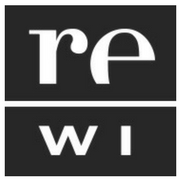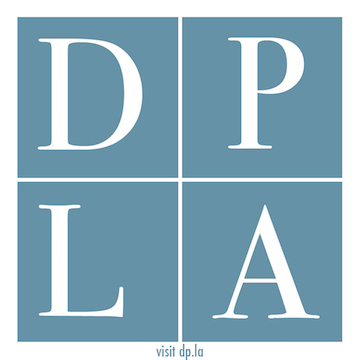Refine your search
You can refine your search by access rights, type, subject, date, location, language and collection using the menus on the left side of the search results.
You can also filter items by Contributing Institution. A Contributing Institution is a library, archive, museum or other Content Partner that contributes metadata describing its digital collections to Recollection Wisconsin and DPLA.
Sort order
By default, search results are sorted by relevance to your search term(s). You can sort alphabetically or by date by choosing a different sort order from the “Sort by” drop-down menu.
Display
You can view 10, 20, 50 or 100 items per page by selecting your preference from the “Items per page” drop-down menu. You can also choose between two different layouts for your search result display: one which shows the the resource thumbnail, title and Contributing Institution and one which shows only the thumbnail.
Advanced searching
You can change the way you enter your search term to get more specific results.
Exact phrases
You can search for an exact phrase by putting it in quotation marks.
“dog shows” returns items with the exact phrase “dog shows”
Boolean operators
You can combine multiple terms using OR and NOT operators. The default behavior when searching multiple terms is Boolean AND.
dog OR cat
dog || cat
returns items with either dog or cat
dog NOT cat
dog -cat
returns items with dog and without cat
Wildcards
Use an asterisk (*) as a substitute for any group of characters within a word.
dog* returns items with the words dog, dogs, doggy, dogged, etc.
Keywords
An item’s title or description may contain another word for your search term. Try synonyms for your search term and think about more specific or broader words that describe your term.
dog — also try: pup, puppy, hound, canine, pet
Full text searching
Our search engine contains only the descriptive information (metadata) from our Content Partners. That means you’re not able to search deeply into the content just by using the search box here. To search the full text of books or other text-based materials, you’ll need to navigate to a specific item or collection and then run a second search within that item or collection.
For example, if you’re looking for information about John Smith from Green County, you might start with a search for Green County. Choose the book History of Green County, Wisconsin from your search results, click “View Full Item” and then search for Smith within the book to reach the specific pages where the name Smith is found.
Want to save your search results?
- To create a list from any set of search results, use the “Create new list” button.
- Add up to fifty items to each list from any search results or item pages. Select your list in the drop-down menu above the search results, then click the “Add to list” box next to each item you would like to save.
- Revisit, revise and download your lists anytime by visiting https://recollectionwisconsin.dp.la/lists in the same browser you used to create them.
What if I don’t find what I’m looking for?
Recollection Wisconsin brings together dozens of digital collections from organizations across Wisconsin, but not all resources our Content Partners make available online can be discovered through our unified search. For example, the search engine does not include resources like cemetery indexes, vital records or many newspapers.
What we make available through Recollection Wisconsin depends on what our Content Partners share with us. The collection continues to grow as we add new Content Partners and as existing partners continue to add resources to their digital collections.
Of course, not everything you may need for your research is available online. If you don’t find what you’re looking for, contact your local library, archives, museum or historical society to find out more about their holdings.
What if I find something offensive or culturally insensitive?
Recollection Wisconsin provides access to historical materials collected by Wisconsin libraries, archives, museums, and other organizations for the purposes of education, research, and preservation. These materials represent a wide range of cultures and time periods. As a result, some content or its description contains outdated, offensive, harmful, or biased views and depictions. You may encounter terms or images that are hurtful to you or set off strong emotional responses.
We welcome feedback on your experience with these materials and will use this information to better understand this issue and educate others. We invite you to use this form to report harmful content (you may remain anonymous if you wish). We will forward your report to the appropriate institution(s); institutions will determine a course of action based on local policies and professional ethics, such as the American Library Association’s Library Bill of Rights and the Society of American Archivists Core Values Statement and Code of Ethics.
Additionally, some materials collected by Wisconsin libraries, archives, museums, and other organizations and made available through Recollection Wisconsin may contain traditional knowledge or may be culturally sensitive for Wisconsin Native Nations or other Indigenous communities. Please approach these materials with respect for the cultures and people they document.
We welcome input from tribal representatives to determine whether materials are culturally sensitive. If you believe that access has been provided to images, items, or information that should be restricted, please contact us at info@recollectionwisconsin.org or through our reporting form. We will forward your report to the appropriate institution(s).
Corrections, updates and inquiries
Recollection Wisconsin does not guarantee the accuracy or completeness of any information provided here. Responsibility for accurate data rests with the organization contributing the digital content.
We welcome corrections or additional information. To suggest a correction or share further information about a resource, contact us or get in touch with the Content Partner directly.


